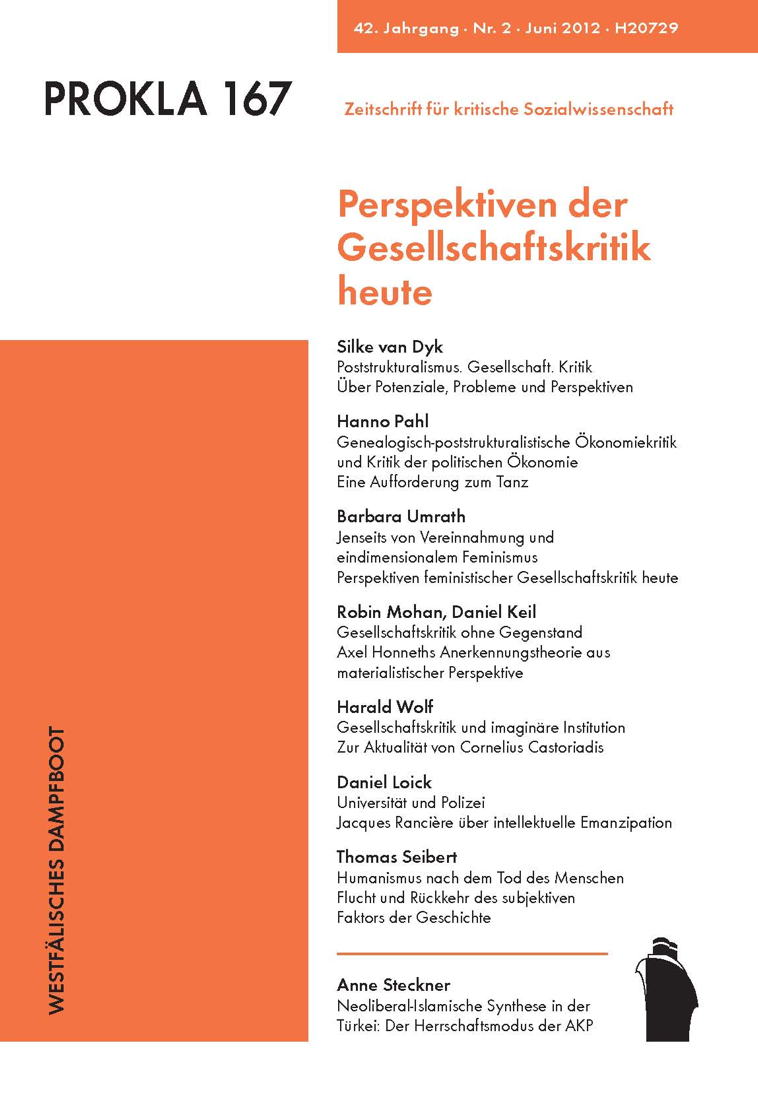Neoliberal-Islamische Synthese in der Türkei
Der Herrschaftsmodus der AKP
DOI:
https://doi.org/10.32387/prokla.v42i167.315Schlagworte:
Neoliberalismus, Islamismus, Türkei, AKP, HegemonieAbstract
After several landslide victories in the elections since 2002, Islamic Justice and Development Party (AKP) has been forming an unchallenged single party government in Turkey. There is a broad and controversial debate on the success and prospects of its societal project. Along with the rise of the ‘Arab Spring’ AKP is even being discussed as a role model party for a moderate Islam in a ‘Muslim democracy’. Far from agreeing with such assessments and based on a Gramscian theoretical approach, this article critically sheds light on the current political and social developments in Turkey on four exemplary fields: democratization process, economic adjustments, faith-based charity and education. As distinct from most Turkey-related research in Germany, which often sees AKP’s power politics as the outcome of a cultural clash of antagonistic elites, this article examines the intertwined dynamics of gaining consent and exercising coercion in the process of capitalist domination. It stresses the contradictory nature of AKP’s cross-culture- and crossclass- coalition, in order to provide a more complex understanding of how AKP’s rule is still met with (comparatively broad) approval of different dominated groups and classes – despite the enormous repression of critical voices.






